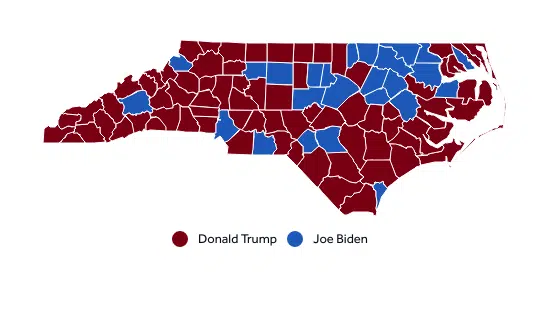
At $85 billion — and counting — Illinois has one of the highest unfunded pension liabilities in the nation, reports the state’s budget crisis task force.
The primary driver of the crisis is simple: Pension funding levels are abysmal. The teachers retirement system is only 46.1 percent funded. The state university employees retirement system is 45.3 percent funded. The state employees retirement system is 34.9 percent funded. The judicial retirement system is just 31 percent funded. But the general assembly retirement system takes the cake with just a 20.2 percent funding level.
A 70 percent funding level would normally be considered dangerously low. The levels seen in Illinois are simply catastrophic.
But it may even be worse than all that, the task force notes, writing, “Illinois’ pension systems are likely in a more dire fiscal condition than they seem. Illinois’ three largest pension systems discount future pension liabilities using an assumed rate of return on investments of around 8 percent.”
Respected investment advisor Mike “Mish” Shedlock writes that “that is not going to happen,” pointing to less-than-desirable economic conditions. Something the task force seems to agree with: “many believe that this assumed rate of return is overly optimistic. Most state pension systems have exceeded an 8 percent rate of return over the past several decades, but the rates have been much lower in recent years.”
And so, the pension funding levels will likely sink in the coming years as the economy continues along at its sluggish pace. Meaning, there simply is no way state employee retirees will ever see anything close to the more than $146 billion they have been promised by the politicians. That is, not without a bailout.
And that’s to say nothing of the $43.9 billion unfunded health care liability for state retirees, according to a recent report by the Pew Center of the States, which has a pathetic funding level of a mere 0.1 percent.
Additionally, the state had $28.8 billion of outstanding debt as of 2011 that must be refinanced or repaid on a rolling basis. Put together, that’s a likely $157.7 billion of future borrowing by Illinois that will be needed to meet all of these obligations.
Illinois is the worst of the worst, but across the country a similar picture emerges. Pew estimates that the unfunded pension and retiree health care liabilities of all 50 states total some $1.38 trillion — and rising.
And that’s probably on the low end, considering that most of the pension plans are structured similarly to Illinois’, assuming 8 percent annual returns, Pew notes.
On top of that, collectively states have another $600.4 billion in outstanding debt to be refinanced or repaid reports State Budget Solutions.
That’s at least $2 trillion states will need to raise just to keep all of their promises — and that’s assuming there is a market miracle, robust growth returns to the U.S. and these pension funds hit their 8 percent annual returns. No way is that going to happen, so it will be even worse.
There is simply no way to fill the gap. Taxes won’t, that’s for sure. The states in the most trouble, like Illinois and California, already have some of the highest tax rates in the country. More taxes likely will not help — it will just encourage businesses to shutter up and folks to move.
Reforming the system — i.e. moving away from a defined benefit system to a defined contribution one and outlawing collective bargaining in the public sector — seems highly unlikely given the political compositions of the state legislatures in those two states. Public employees are key constituencies for Democrats there. They were elected to keep the Ponzi scheme going for as long as possible.
The only other option is to default on these obligations on the basis that they cannot be paid, and for politicians to be forced to explain to the public employees and pensioners that because they did not reform the system when they had the chance, the promises are no longer any good.
The irony is that the same public employee unions who have spent hundreds of millions of dollars in other states castigating public officials who dare try to reform these broken systems — which were arrived at through the collective bargaining process — would then face the consequences of their own intransigence.
All of which gives perspective for why some are now calling for the Federal Reserve to begin purchasing hundreds of billions of dollars of state and municipal bonds, as have Stanford law professors Joseph Grundfest, Mark Lemley and George Triantis.
After all, why bother reforming anything or defaulting if the central bank can just print trillions of dollars to cover the gap? If it works for the federal government and banks where the central bank buys much of their bad debt, it should work for the states, too, right?
Of course, this “solution” would put the Fed into the exact same situation as the European Central Bank is in bailing out Greece, Italy, and Spain — bankrupt sovereigns who see no other way to get their fiscal houses in order and maintain civil order. What we’ve already learned from Europe is that this “solution” provides little incentive to those bailed out states to actually do things that might, in time, put them on the road to solvency.
In the process, it spreads the cost of fiscal irresponsibility to those who don’t overspend or overpromise. That means everyone else gets put on the hook for politicians’ big mistakes — again.
At the end of the day, default is probably the best option for Illinois and other bankrupt states, because if the Fed bails out those out that refuse to reform their broken systems, they will have to do it for everyone.
Instead, they should be allowed to fail, and the politicians can then face the voters and explain why they never reformed the system, a fate they richly deserve.
Bill Wilson is the President of Americans for Limited Government. You can follow Bill on Twitter at @BillWilsonALG.







